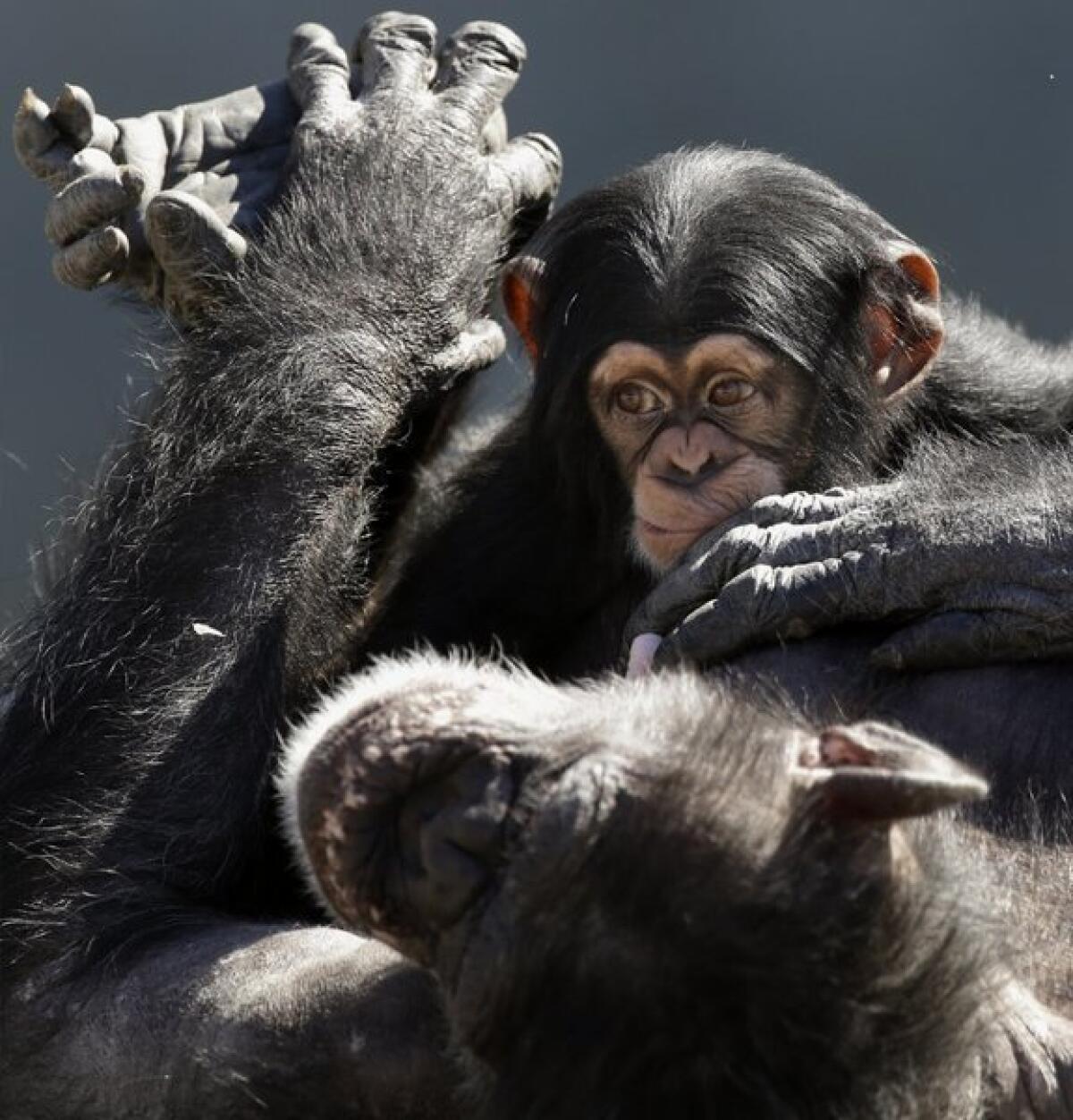National Institutes of Health to retire most lab chimpanzees

- Share via
Following the recent federal decision to list captive chimpanzees as an endangered species, the National Institutes of Health announced Wednesday it would retire the majority of the approximately 360 government-owned chimpanzees currently held in laboratories.
The NIH will begin implementing most of the recommendations made by an advisory group that considered the findings of a 2011 Institute of Medicine study that concluded chimps were no longer crucial for most biomedical and behavioral research.
The lab chimps will be retired to facilities already housing aging great apes.
The NIH said it would reserve up to 50 chimpanzees in a laboratory for potential future use, emphasizing that the animals would be housed in “ethologically appropriate” settings.
As the closest living relatives to humans with 98% of the same DNA, chimpanzees have played an indispensable role in biomedical and behavioral research. Scientists kept them in large colonies in Texas and New Mexico, where they are commonly housed in large corrals or cages, usually in groups.
They are sometimes held separately for extended periods because they are in fragile health or to prevent the transmission of diseases, according to a 2011 report from the Institute of Medicine.
Scientists credit chimps with helping make important discoveries involving cancer, hepatitis, autoimmune diseases and other conditions. Although there are still a few areas of biomedical research for which chimps remain essential, experiments involving them have fallen out of favor as scientists switched to using mice, rats and other animals that have been genetically altered so that their immune systems mimic those of humans.
@julie_cart







